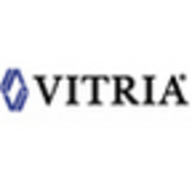

Appian and Vitria BusinessWare are both in the business process management platform category offering automation solutions. Appian appears to have an upper hand in rapid deployment and user-friendly interface, while Vitria BusinessWare excels in handling complex data analytics, which is crucial for data-intensive environments.
Features: Appian offers a low-code development environment suitable for rapid app deployment. It includes real-time reporting and a comprehensive suite of integrations. Vitria BusinessWare provides advanced data integration, process optimization capabilities, and robust data analytics, making it compelling for environments requiring extensive data management.
Ease of Deployment and Customer Service: Appian features a cloud-based deployment model that simplifies installation and is complemented by responsive customer service for smooth implementation. Vitria BusinessWare supports a hybrid deployment model, offering flexibility for both on-premise and cloud needs, though its customer service, while comprehensive, may be seen as less direct than Appian's.
Pricing and ROI: Appian is known for moderate setup costs with a focus on delivering quick ROI through improved efficiency. Vitria BusinessWare may involve higher initial costs due to its data management capabilities but provides a significant long-term ROI by enhancing data insights. Appian's cost-effectiveness is attractive for budget-conscious companies, whereas Vitria BusinessWare's data depth justifies its initial expense for data-centric enterprises.

Appian is a unified low-code platform and solution used by businesses to build enterprise applications and workflows. This product adapts to the needs of clients and the technologies they are already using to combine their data in a single workflow and maximize resources. The platform has four main components through which it transforms the work process for companies of various sizes. They are:
Appian is utilized across a diverse set of industries, including automotive and manufacturing, energy and utilities, education, financial services, telecom and media, transportation, retail, insurance, healthcare, and life sciences. The most frequent use cases of Appian are customer journey, governance, risk and compliance, operational efficiency, supply chain, distributed order management, and environmental, social, and governance (ESG) management.
Appian Features
Appian has various features that allow users to create solutions for their businesses. These features can be separated into a few groups according to function, including automation, low-code application development, and integrations and data. Some of the most frequently used features of Appian include:
Appian Benefits
The benefits of using Appian include:
Reviews from Real Users
A practice leader - digital process automation at a computer software company values Appian highly because the product is easy to develop, low-code, and has a good user interface.
Alan G., an advisory board member at Codecon VR, Appian offers a clear application life cycle, easy to learn documentation, and comes with a fundamentals course.
We monitor all Process Automation reviews to prevent fraudulent reviews and keep review quality high. We do not post reviews by company employees or direct competitors. We validate each review for authenticity via cross-reference with LinkedIn, and personal follow-up with the reviewer when necessary.